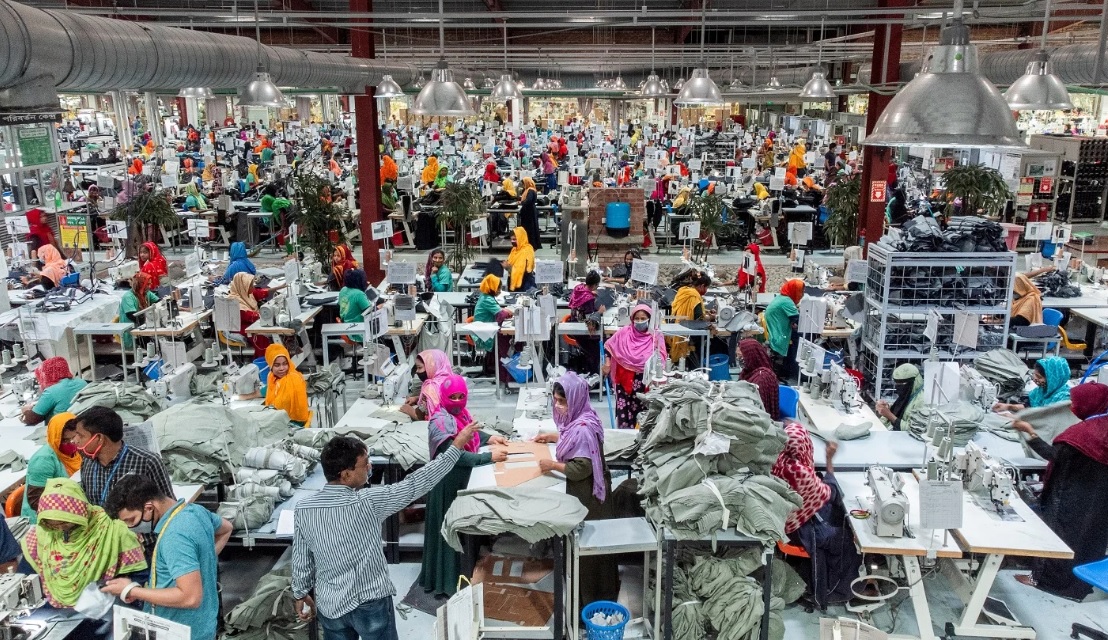
A new report by Swedwatch paints a grim picture of workers in Bangladesh garment industry. It says despite a recent increase in minimum wage, workers are still struggling to make ends meet and are trapped in a cycle of debt and dependence on overtime.
The report, titled ‘Securing Living Wages for Bangladesh's Garment Workers’, highlights the plight of RMG workers who produce clothing for the EU market. It finds the current minimum wage of Tk 12,500 (€94) per month, while an improvement from the previous Tk 8,000, still falls far short of a living wage, estimated to be Tk 23,000 (€173) per month. This means, workers earn only 38 per cent of what they need to cover basic living expenses. "Decades of activism and corporate pledges have failed to secure a living wage for garment workers in Bangladesh," the report states. "Instead, they are trapped in an exploitative system where low wages, excessive overtime, and precarious employment are the norm." As Kalpona Akter, Executive Director, Bangladesh Center for Worker Solidarity opines, "The recent increase in minimum wage is a step in the right direction, but it is not enough. Workers need a living wage that allows them to meet their basic needs and provide for their families."
Low wages and excessive overtime
The report states, the current minimum wage is insufficient to cover basic needs, forcing workers to rely on overtime and loans. However, workers are often pressured to work excessive overtime hours to compensate for low wages, leading to health problems and exhaustion. And they have little bargaining power due to weak trade unions and fear of reprisals. This results in many workers being trapped in a cycle of debt due to low wages and unexpected expenses. "The garment industry in Bangladesh is built on the backs of low-paid workers who are denied a decent standard of living," says Anna Bryher, Advocacy Advisor at Swedwatch. "It is time for brands and retailers to take responsibility and ensure that the workers who make their clothes are paid a living wage."
Table: Current monthly wages and requirement
|
Metric |
Current situation |
Living wage requirement |
|
Monthly Minimum Wage |
Tk 12,500 (€94) |
Tk 23,000 (€173) |
|
Percentage of Living Wage |
38% |
100% |
The report highlights the case of Shapna a garment worker who has been struggling to make ends meet since overtime hours were reduced in her factory. "As we have not had any overtime work for the last six months, most of us are living life on a loan," Shapna told Swedwatch researchers. "I have taken loans from several NGOs. I am also in debt to the factory owner and my neighbors."
Shapna's situation is not unique. The report found many workers are forced to take loans from various sources, including NGOs, family members, and even their employers, to cover basic expenses. This often leads to a cycle of debt that is difficult to break.
Need for corrective measures
The Swedwatch report calls on brands and retailers sourcing from Bangladesh to take concrete steps to ensure that workers in their supply chains are paid a living wage. This includes:
• Committing to paying living wages: Brands should publicly commit to paying living wages to all workers in their supply chains.’
• Improving purchasing practices: Brands should ensure that their purchasing practices do not contribute to low wages and excessive overtime.
• Supporting collective bargaining: Brands should support the development of strong and independent trade unions in the garment sector.
The report also urges the Bangladesh government to take action to improve the situation of garment workers, including strengthening labor laws and enforcement, and promoting social dialogue.












